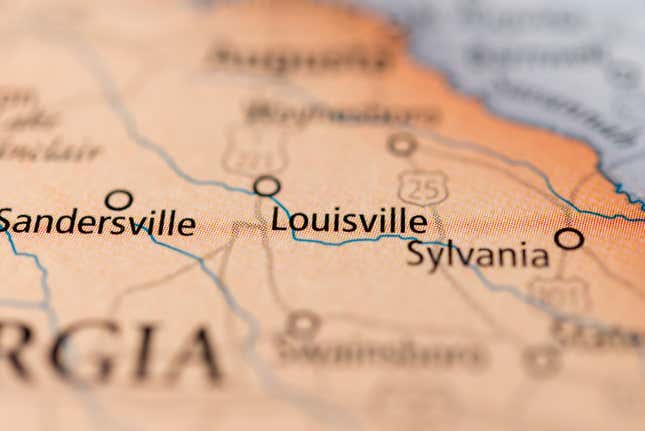
In Louisville, Ga., one of the last remaining former slave markets is finally being removed from the town’s center.
CNN reports that an advisory committee of 14 members was formed in July to determine what to do with the Old Market House. The structure has been in the town—the first capital of the state—since 1795 and is one of the few remaining former slave markets still standing in the country. On Tuesday, the Louisville city council voted in favor of the committee’s proposal to remove the structure from the town’s center. “We’re trying our best to do what’s right here,” Louisville Mayor Larry Morgan told WJBF. The town has mostly been supportive of the endeavor; of the 70 letters the committee said they received regarding the removal, 42 were in favor and only 16 were opposed. The remaining 12 letters had mixed opinions.
Following the vote, questions remain on where the structure will be relocated, what will replace it and what potential legal ramifications may arise from moving it. “Since our last committee meeting, issues concerning legal right-of-way have been posed; and state Sen. Jesse Stone requested the State’s Attorney General to offer an opinion on the legality of moving this historic structure,” Lillian Easterlin, advisory committee member and executive administrative director of Jefferson County, told CNN.
Community members have proposed plans to build a museum where the Old Market House stands should no legal obstacles arise. “I just want for everyone to come together. I want for downtown to be a place that everyone loves and right now it’s not. So I feel like, for our future generations and our current generations, we have to do something. And now is the time. We have this platform and now is the perfect time to use it,” Nikki Tarver, an advisory committee member, told WJBF.
The city of Louisville said that currently, there are no set plans for where the structure will go nor what would replace it in the event of it’s removal. It’s just wild to me that a former slave market stood in the middle of an American town and it took over 100 years for (white) folks to finally go, “You know, that’s a little bit weird.” This firmly skips “better late than never,” territory and goes straight to “it’s about damn time.”

